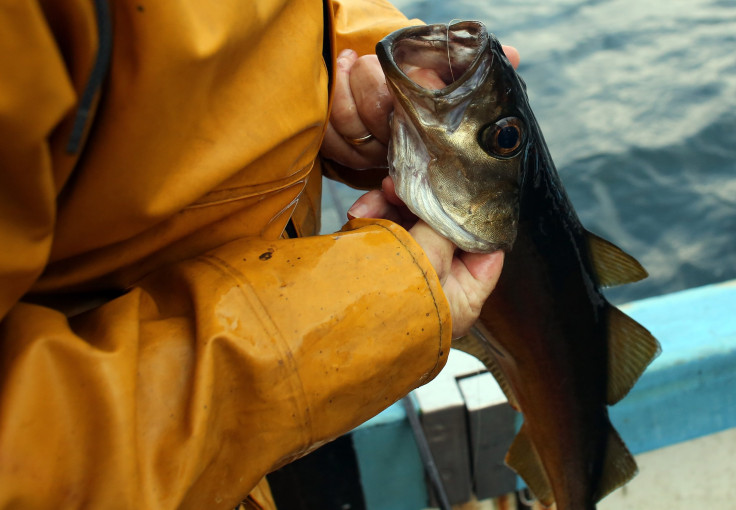Antidepressants Found In Brains Of 10 Fish Species

Antidepressants are increasingly building up in the brains of several species of fish in the Great Lakes region. A new study claims scientists detected traces of antidepressants in large clusters, according to research from the University of Buffalo (UB). Bass and walleye fish are among the 10 affected species.
The study, published Aug. 16 in the journal "Environmental Science and Technology," wanted to examine the concentrations and bioaccumulation of pharmaceuticals and personal care products (PPCPs) that are released into freshwater. UB researchers found metabolized remnants of high concentrations of antidepressants in the brain tissues of 10 fish species in the Niagara River.
This discovery raises major environmental concerns because it could affect the fishes behavior, including its survival instincts and feeding practices. These changes could disrupt the balance of the ecosystem and prevent its overall stability.
"These active ingredients from antidepressants, which are coming out from wastewater treatment plants, are accumulating in fish brains," Diana Aga, the study's lead author, said in a news release. "It is a threat to biodiversity, and we should be very concerned."
The rock bass fishes, in particular, were exposed to antidepressants at a higher rate than other fish species. Approximately 400 nanograms of norsertraline (the active ingredient in Zoloft) per gram of brain tissue were detected in rock bass fish. Other ingredients found in the rock bass fish — and the other nine fish species — included citalopram (the active ingredient in Celexa) and norfluoxetine (the active ingredient in Prozac and Sarafem).
The brain contained the highest concentration of antidepressants, but it wasn't the only location antidepressants were present in fish. UB researchers reportedly detected remnants in the fishes' livers, muscles and gonads. Wastewater treatment plants (WWTP) located by the water are directly responsible for the fishes' exposure, according to the researchers.
The antidepressants present within fish species doesn't pose a threat during human consumption. Residents in the United States, in particular, will avoid any level of danger since Americans don't typically eat fish organs like the brain. However, researchers claim that danger posed to biodiversity is a legitimate threat.
"The levels of antidepressants found do not pose a danger to humans who eat the fish, especially in the U.S., where most people do not eat organs like the brain," Randolph Singh, a recent UB grad who worked on the study, said in a news release. "However, the risk that the drugs pose to biodiversity is real, and scientists are just beginning to understand what the consequences might be."
A representative from the University of Buffalo did not immediately return International Business Times' request for comment.
Releasing waste into freshwaters has become problematic for aquatic life. Scientists have been able to detect pollutants in fresh waters with the improvement of technology, according to National Geographic. Such pollutants include pesticides, birth control pills and sunscreen, among other contaminants. Lakes, rivers, oceans, streams and groundwaters suffer from the damage of water pollution. This damage directly affects the aquatic life residing within these freshwaters.
"Fish absorb all the contaminants from the chemical soup that they swim in, and fish flesh has been found to contain mercury, lead, arsenic, pesticides, and, now, antidepressants," Tracy Reiman, PETA's executive vice president, said in a statement issued to International Business Times Thursday. "The devastation humans have wrought on these sensitive aquatic animals' homes is yet another reason to keep them off our plates and spare them the agony of being impaled, netted, and gutted."
Greenpeace, a nonprofit organization that aims to increase public awareness about environmental issues, recommended ways to prevent the pollution of freshwaters on its website. One simple recommendation was the avoidance of products with excessive packaging.
© Copyright IBTimes 2024. All rights reserved.






















